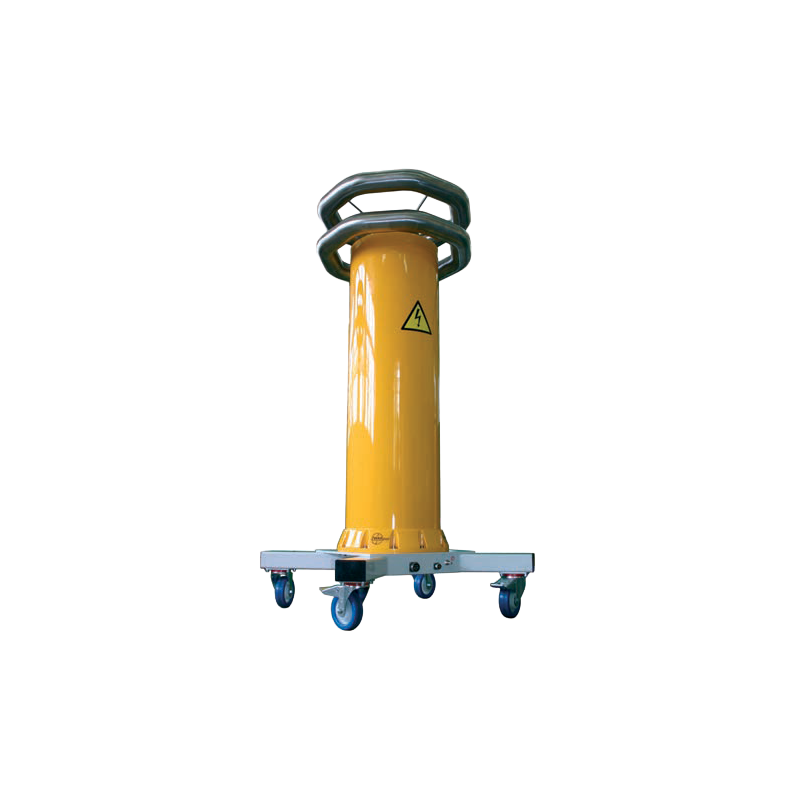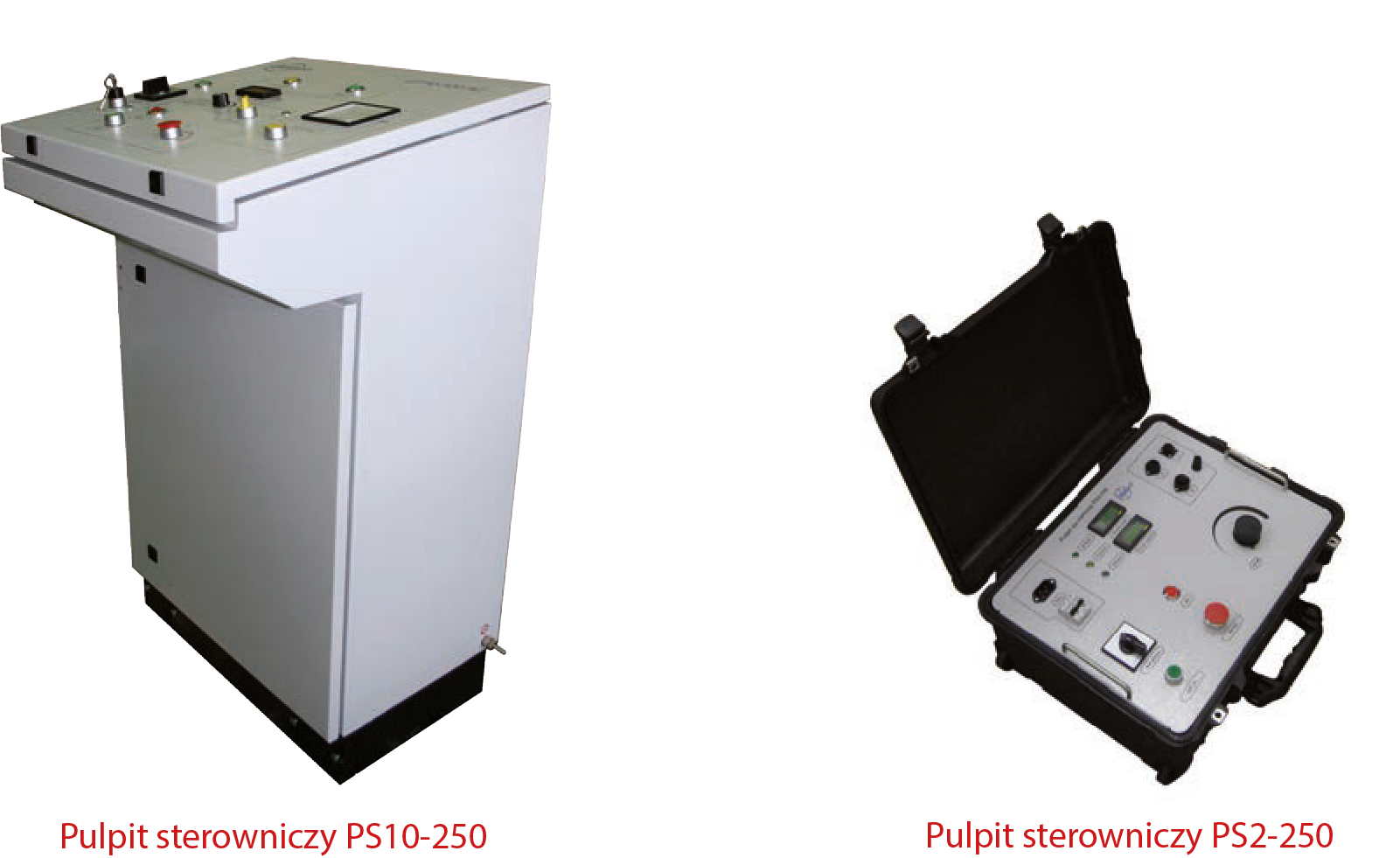

Category


Photos are for informational purposes only. View product specification
please use latin characters
These systems are designed to test the strength of dielectrics with alternating or direct voltage. They are mainly used in high voltage laboratories of research and development units as well as quality control units.
• The system consists of a HV test transformer (TP, TPJ or TPS), a control panel (PS), and optionally a divider (DN) and a regulating transformer (TRP10);
• Power range up to 100 kVA;
• Maximum secondary voltage range up to 300 kV;
• Control via a panel or control case, equipped with a regulating autotransformer with a drive operated by a microprocessor controller;
• A controller enabling programming of the voltage value, voltage increase speed, and test duration;
• The system can be equipped with a brushless regulating transformer. TRP
• Voltage measurement using a LV divider or a tap on the HV side;
• Equipping the transformer with a half-wave rectifier allows for the creation of a DC voltage testing system.


1) It is possible to manufacture transformers with a voltage above 300 kV after consultation with the manufacturer.
2) It is possible to manufacture transformers with a power higher than 10 kV after consultation with the manufacturer.
• Safety lock preventing accidental switching on of the voltage.
• Manual or automatic control.
• Fast short-circuit protection.
• Voltage and current measurement.
• Possibility of using a DN type voltage divider (optional).
• Possibility of using a TRP10 brushless autotransformer.
• Possibility of manufacturing a PS2-250 control panel in a 19” Rack housing.
• Complete set of connecting cables and 2 x 10 m long power lines
• Ergonomic design facilitates correct testing
• Production process parameters confirmed by the Quality Management System according to PN-EN ISO 9001:2009
Are you interested in this product? Do you need additional information or individual pricing?
These systems are designed to test the strength of dielectrics with alternating or direct voltage. They are mainly used in high voltage laboratories of research and development units as well as quality control units.
• The system consists of a HV test transformer (TP, TPJ or TPS), a control panel (PS), and optionally a divider (DN) and a regulating transformer (TRP10);
• Power range up to 100 kVA;
• Maximum secondary voltage range up to 300 kV;
• Control via a panel or control case, equipped with a regulating autotransformer with a drive operated by a microprocessor controller;
• A controller enabling programming of the voltage value, voltage increase speed, and test duration;
• The system can be equipped with a brushless regulating transformer. TRP
• Voltage measurement using a LV divider or a tap on the HV side;
• Equipping the transformer with a half-wave rectifier allows for the creation of a DC voltage testing system.


1) It is possible to manufacture transformers with a voltage above 300 kV after consultation with the manufacturer.
2) It is possible to manufacture transformers with a power higher than 10 kV after consultation with the manufacturer.
• Safety lock preventing accidental switching on of the voltage.
• Manual or automatic control.
• Fast short-circuit protection.
• Voltage and current measurement.
• Possibility of using a DN type voltage divider (optional).
• Possibility of using a TRP10 brushless autotransformer.
• Possibility of manufacturing a PS2-250 control panel in a 19” Rack housing.
• Complete set of connecting cables and 2 x 10 m long power lines
• Ergonomic design facilitates correct testing
• Production process parameters confirmed by the Quality Management System according to PN-EN ISO 9001:2009
Your review appreciation cannot be sent
Report comment
Report sent
Your report cannot be sent
Write your review
Review sent
Your review cannot be sent
